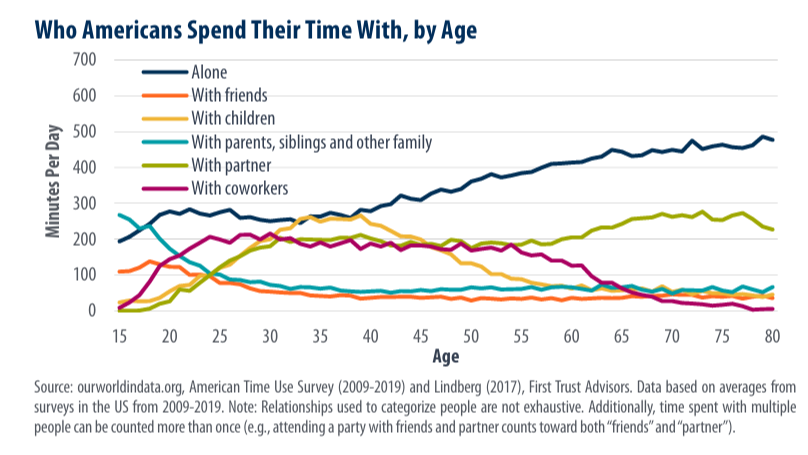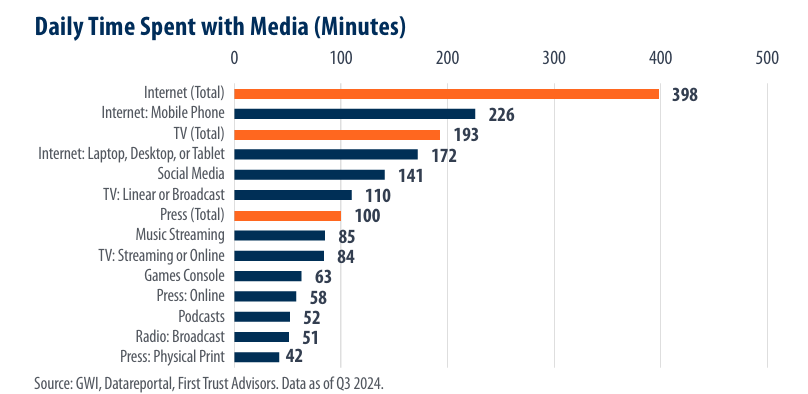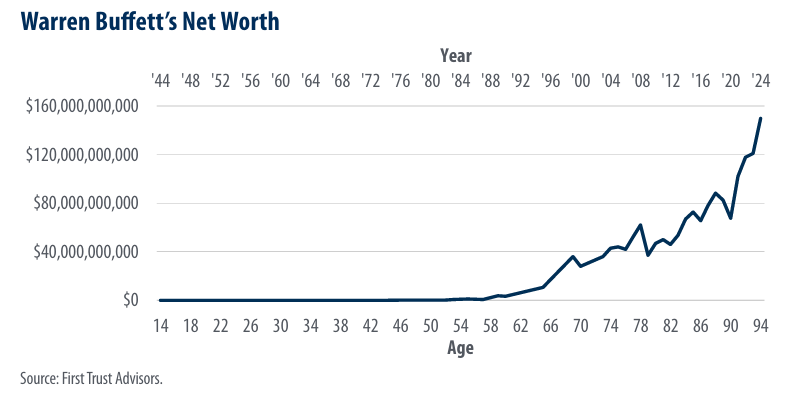Time: Our Most Precious Asset
April 1, 2025 / Community
The markets are at the forefront of many conversations today, and largely how they are out of our control. Time is yet another aspect beyond our control. However, what we do with it – both our time and our money – is entirely up to us. Here is a piece of perspective from the minds at First Trust on the value of time:
William Penn, the Quaker leader and founder of Pennsylvania, saw time as a divine gift—precious yet often squandered. His experiences—fighting for religious freedom, governing a colony, and enduring imprisonment—shaped his understanding of its value. In 1693, he captured this wisdom in Some Fruits of Solitude, a collection of reflections on life and virtue, where he famously observed, “Time is what we want most, but what we use worst.” In an era where life was uncertain and often brief, his words served as a call to live with intention. Today, they remain just as relevant—while we constantly wish for more time, it is finite. The real challenge is using what we have wisely.

To understand how social connections evolve over a lifetime, we can analyze survey data on the amount of time people spend with others and who those interactions involve. The chart presented here illustrates the time individuals in the U.S. report spending in the company of others, categorized by age. According to this data, social interactions peak around age 40 before gradually declining. After this point, time spent alone begins to increase significantly, while time spent with children decreases sharply. This serves as a powerful reminder to cherish and invest in meaningful relationships while we have the opportunity.

Media consumption continues to take up an increasing share of daily life. The newly released Digital 2025 Global Overview Report by Datareportal provides a comprehensive analysis of global digital adoption and usage. With 640 in-depth charts, the report explores key trends in internet behavior, social media engagement, mobile usage, e-commerce, and digital marketing. According to GWI, a Datareportal partner specializing in global consumer research, internet users aged 16 and older now spend an average of over 6.5 hours online per day—with 2 hours and 21 minutes dedicated to social media alone as of Q3 2024.

It’s not about timing the market—it’s about time in the market that truly matters. This often surprises people, but Warren Buffett didn’t become a billionaire until he was over 50. Today, his net worth is around $150 billion, meaning over 99% of his wealth was accumulated after turning 50. Buffett started investing at just 11 years old, putting $114.75 into a natural gas company called Cities Service. His success is a testament to the power of time and compound growth. The earlier you invest, the sooner compound interest works its magic, potentially turning modest early investments into substantial wealth over time. Wealth-building isn’t exclusive to financial wizards—it’s accessible to anyone with patience, discipline, and time on their side.
Source: First Trust Economics
